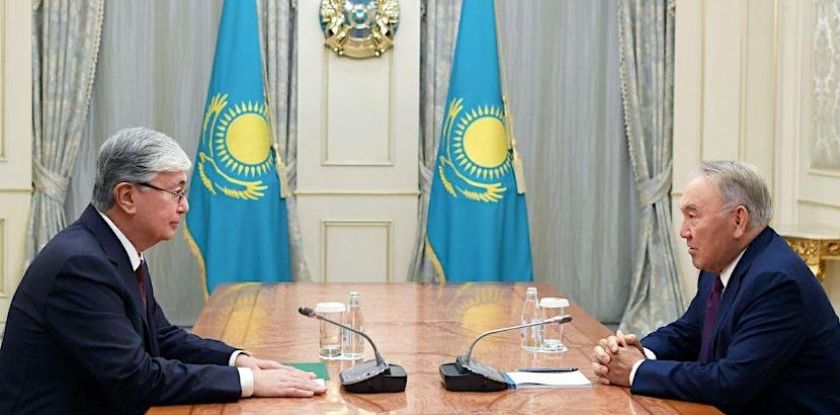Recently, we have forecasted that the «historic» decision of President Kossym-Jomart Tokayev on imposing the emergency rule for the duration of one month (from March 15 to April 15, 2020) is likely to be prolongated, several times perhaps. Based on the information received from our sources, Akorda and the Library are discussing this issue right at this moment.
The main difficulty lies in the fact that, even though there are no technical obstacles for prolonging the emergency rule (another Presidential decree would be enough), it is virtually impossible to predict what results it can bring. The authorities understand full well that the «temperature» in the society is rising rather quickly especially since there is an abundance of reasons for that including despotism and corruptness of siloviks and officials and the desire of entrepreneurs to earn something by any means possible.
As a result, Akorda and the Library are now faced with a dilemma.
If they will not prolongate the emergency rule in the country, they may hope for restoring the economic activity and, therefore, the employment rate and the people’s income level. Which means that the risks of the further worsening of the socio-economic conditions will be reduced quite noticeably.
However, the coronavirus pandemics persists, and it is impossible to predict how many citizens will get sick and die. Apart from that, the Kazakhs who, as a people, are not used to self-discipline and following the rules, are violating the quarantine regime and the rules of behaviour is the age of the coronavirus pandemics en masse. Will the further worsening of the situation lead to the taking out of the protest sentiment to streets when, starting with robbing small shops, the protesters will then switch to seizing the state agencies and the residences of wealthier people?
In other words, right now Akorda and the Library are realising that the dissent of the Kazakh citizens is going to grow. Moreover, it will grow regardless of what decision will be made re prolongating or terminating the state of emergency in the country. Therefore, the authorities are doomed to choose between the two very bad (we would even say hopeless) decisions.
And what’s significantly adds to the hopelessness is the impossibility to somehow reach an agreement with the population and mobilise it for the sake of salvation. One of the reasons lies in the poor organisation of the society created, among other things, by years-long authoritarian political system and the «super-presidential» vertical.
If is for this reason that Akorda and the Library are likely to prolong the emergency rule for one month hoping that it will give a free hand to state agencies and particularly siloviks to be used in a case of emergency.
As for the risks related to this decision, then, to the already existing ones (such as the massive-scale irresponsibility and the absence of discipline on the part of the citizens, the slowdown of the economic activity, the dramatic rise of unemployment and the drop of the income level, the reduction of the tenge exchange-rate and the speeding up of inflation, the deficit of the goods and medical care), one should add the coming of spring. In other words, the part of the year when everything is awakening — from human emotions to nature.
So, it looks like President Kossym-Jomart Tokayev will have to made yet another address to the nation. Simply because no other possibility to communicate the position of the authorities to their fellow citizens exists in the country. For they may listen to the governors, but they are unlikely to believe them. Rather, the people will start acting in an exact opposite manner simply due to their habit not to trust anyone.
Also, it looks like the authorities will have to somehow ease the quarantine regime by, for instance, allowing people to drive to their dachas and vegetable gardens. As well as whip into shape assigning and paying the social aids from the State Social Insurance Fund simultaneously increasing the number of their receivers. For instance, by paying smaller social aids to welfare recipients in comparison to the main social aid relievers, but nonetheless still keeping the payments to the former at a significant level, at least 80% of 42 500 tenge.





